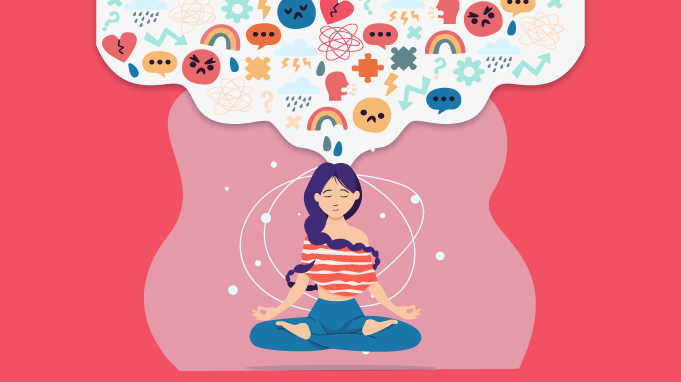Summarize how the components of health are related to wellness.
Wellness is a state of complete physical, mental, and social wellbeing, not merely the absence of disease or infirmity. To achieve optimal wellness, it is essential to focus on each component of health, as they are interconnected and affect each other. Understanding how each component of health impacts overall wellbeing is crucial to developing and maintaining a healthy lifestyle. In this article, we will summarize how the components of health are related to wellness and provide tips on how to enhance each aspect of your health.

The Components of Health and Their Relationship to Wellness
The components of health include physical, emotional, mental, and social health. Each component contributes to overall wellness and affects one another.
Physical Health
Physical health is the state of the body’s wellbeing and includes aspects such as nutrition, exercise, and sleep. It is the foundation of overall wellness and is essential for the body to function correctly.
Some ways physical health contributes to overall wellness are:
- Enhances the immune system to protect against illness and disease.
- Increases energy levels and improves mood.
- Reduces the risk of chronic illnesses such as heart disease, diabetes, and obesity.
- Increases lifespan and overall quality of life.
Tips for improving physical health and wellness include:
- Engaging in regular physical activity such as walking, jogging, or cycling.
- Eating a well-balanced diet rich in fruits, vegetables, lean protein, and whole grains.
- Getting enough sleep and practicing good sleep hygiene.
- Avoiding harmful habits such as smoking and excessive alcohol consumption.
Emotional Health
Emotional health is the state of emotional wellbeing and involves managing one’s emotions, coping with stress, and maintaining a positive outlook on life. It is essential for overall wellness and impacts physical health as well.
Some ways emotional health contributes to overall wellness are:
- Reduces the risk of depression, anxiety, and other mental health conditions.
- Enhances self-esteem and confidence.
- Improves relationships and social connections.
- Increases the ability to cope with life’s challenges.
Tips for improving emotional health and wellness include:
- Practicing mindfulness and meditation.
- Expressing emotions through healthy outlets such as journaling or talking to a therapist.
- Building healthy relationships and social connections.
- Engaging in activities that bring joy and a sense of purpose.
Mental Health
Mental health is the state of mental wellbeing and involves the ability to think, learn, and process information. It is essential for overall wellness and impacts emotional and physical health as well.
Some ways mental health contributes to overall wellness are:
- Enhances cognitive function and memory.
- Improves academic and work performance.
- Increases creativity and problem-solving abilities.
- Reduces the risk of mental health conditions such as dementia and Alzheimer’s.
Tips for improving mental health and wellness include:
- Engaging in brain-stimulating activities such as puzzles or reading.
- Learning new skills and pursuing hobbies.
- Seeking professional help if experiencing symptoms of a mental health condition.
- Practicing stress-reduction techniques such as deep breathing or yoga.
Social Health
Social health is the state of social wellbeing and involves building positive relationships and connections with others. It is essential for overall wellness and impacts emotional and physical health as well.
Some ways social health contributes to overall wellness are:
- Increases feelings of happiness and fulfillment.
- Improves communication and interpersonal skills.
- Provides a support system during difficult times.
- Reduces the risk of mental health conditions such as depression and loneliness.
- Building strong relationships with family and friends.
- Joining social clubs or groups based on shared interests.
- Volunteering in the community or engaging in charitable work.
- Practicing empathy and active listening skills.
FAQs
- What is wellness, and why is it essential to focus on the components of health?
Wellness is a state of complete physical, mental, and social wellbeing, not just the absence of disease or infirmity. Focusing on each component of health is essential to achieve overall wellness, as each aspect is interconnected and affects one another.
- How can I improve my physical health and wellness?
You can improve your physical health and wellness by engaging in regular physical activity, eating a well-balanced diet, getting enough sleep, and avoiding harmful habits such as smoking and excessive alcohol consumption.
- What are some ways to enhance emotional health and wellness?
Some ways to enhance emotional health and wellness include practicing mindfulness and meditation, expressing emotions through healthy outlets such as journaling or talking to a therapist, building healthy relationships and social connections, and engaging in activities that bring joy and a sense of purpose.
- How can I improve my mental health and wellness?
You can improve your mental health and wellness by engaging in brain-stimulating activities such as puzzles or reading, learning new skills and pursuing hobbies, seeking professional help if experiencing symptoms of a mental health condition, and practicing stress-reduction techniques such as deep breathing or yoga.
- Why is social health important for overall wellness?
Social health is essential for overall wellness as it involves building positive relationships and connections with others, which can increase feelings of happiness and fulfillment, improve communication and interpersonal skills, provide a support system during difficult times, and reduce the risk of mental health conditions such as depression and loneliness.
Conclusion
In summary, understanding how the components of health are related to wellness is crucial to developing and maintaining a healthy lifestyle. Focusing on each aspect of health, including physical, emotional, mental, and social health, can enhance overall wellbeing and reduce the risk of chronic illnesses and mental health conditions. By implementing the tips outlined in this article, you can take proactive steps towards achieving optimal health and wellness. Remember, a healthy lifestyle is a journey, not a destination.

